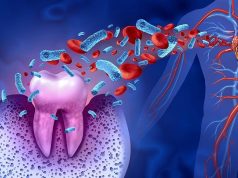Vegetarians had lower ischemic stroke risk in two cohorts, lower hemorrhagic stroke risk in one cohort
FRIDAY, Feb. 28, 2020 (HealthDay News) — In a population from Taiwan, vegetarian diet was associated with a reduced risk for overall, ischemic, and hemorrhagic stroke, according to a study published online Feb. 26 in Neurology.
Tina H.T. Chiu, Ph.D., R.D., from Fu Jen Catholic University in New Taipei City, Taiwan, and colleagues recruited two cohorts of participants without stroke (5,050 recruited from the Tzu Chi Health Study in 2007 to 2009 and 8,302 recruited from the Tzu Chi Vegetarian Study in 2005) and followed them through 2014. In both cohorts, diet was assessed through food frequency questionnaires at baseline.
The researchers identified 54 events in 30,797 person-years of follow-up in cohort 1. The risk for ischemic stroke was lower for vegetarians versus nonvegetarians (hazard ratio, 0.26; 95 percent confidence interval [CI], 0.08 to 0.88). There were 121 events in 76,797 person-years of follow-up in cohort 2. The risks for overall stroke, ischemic stroke, and hemorrhagic stroke were lower for vegetarians versus nonvegetarians (hazard ratios [95 percent CIs], 0.52 [0.33 to 0.82], 0.41 [0.19 to 0.88], and 0.34 [0.12 to 1.00], respectively). The association between vegetarian diet and overall stroke may have been modified by vitamin B12 intake.
“Our study found that a vegetarian diet was beneficial and reduced the risk of ischemic stroke even after adjusting for known risk factors like blood pressure, blood glucose levels, and fats in the blood,” a coauthor said in a statement. “This could mean that perhaps there is some other protective mechanism that may [be] protecting those who eat a vegetarian diet from stroke.”
Copyright © 2020 HealthDay. All rights reserved.








